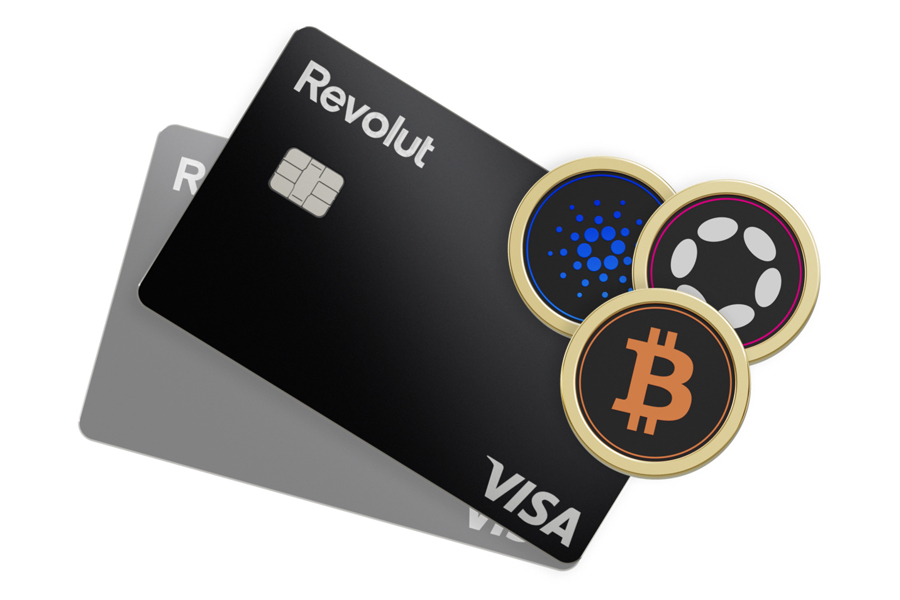As more and more people embrace cryptocurrencies, more clients are interested in banking services connected to cryptocurrencies.
The rise of both the industry and of crypto-friendly banks has paved the way for several services that are largely beneficial to the community of blockchain enthusiasts.
These banks not only offer the means for investing in cryptocurrencies and carrying out operations with the new digital money but also offer a regulated platform for storing and utilizing cryptocurrencies.
Below are the top 10 crypto-friendly banks in 2024: Bank offerings and aspects to consider when selecting a crypto-friendly bank.
What are Crypto Friendly Banks?
Crypto-friendly banks, better known as Crypto banks or Digital asset banks, are those particular financial institutions that chalk out their products and services to involve or support cryptos.
These are normally ordinary commercial banks engaged in offering such services as wallets for storing the cryptocurrencies, trading in these products, offering credits and other related financial services.
This is one good advantage in engaging a crypto-friendly bank, where you will have an easy way to manage your cryptocurrencies with other banking services.
One of the key things you can get from this integration is the fact that it enables you to swap fiat and cryptocurrencies and perform your banking operations together with crypto management.
Also Check: How Does a Hash Help Secure Blockchain Technology?
Top 10 Crypto Friendly Banks to Consider
1. Crypto.com Bank
Overview: Crypto.com Bank is a pioneering digital asset bank based in Singapore. It offers a comprehensive suite of crypto banking services, including crypto wallets, trading platforms, and lending services.

Crypto Services:
- Crypto wallets for secure storage of digital assets
- Trading platform for buying, selling, and exchanging cryptocurrencies
- Crypto lending and borrowing services
- Crypto debit cards for everyday spending
Fees and Account Requirements: Crypto.com Bank has competitive fees for its services, and users can open accounts with varying levels of verification based on their needs.
Pros:
- Wide range of supported cryptocurrencies
- User-friendly mobile app and website
- Attractive interest rates on crypto savings accounts
Cons:
- Limited geographic availability
- Higher fees for certain services compared to competitors
2. Anchorage Digital Bank
Overview: Anchorage Digital Bank is a regulated digital asset bank headquartered in the United States. It provides institutional-grade crypto banking services to businesses and high-net-worth individuals.
Crypto Services:
- Secure custody solutions for digital assets
- Crypto trading and execution services
- Lending and borrowing services
- Staking and yield farming opportunities
Fees and Account Requirements: Anchorage Digital Bank caters primarily to institutional clients and has relatively high account minimums.
Pros:
- Robust security measures, including air-gapped cold storage
- Regulatory compliance and licensing in multiple jurisdictions
- Dedicated client support team
Cons:
- Limited services for retail customers
- Higher fees compared to some competitors
3. Sygnum Bank
Overview: A Swiss-based digital asset bank licensed by the Swiss Financial Market Supervisory Authority (FINMA).
- Crypto Services: Crypto custody and trading, asset management, and tokenization services.
- Pros: Strict regulatory compliance, institutional-grade security, tokenization capabilities.
- Cons: High account minimums, limited geographic availability.

4. EQIBank
Overview: A licensed and regulated digital asset bank based in Lithuania, catering to both retail and institutional clients.
- Crypto Services: Crypto trading and custody, crypto debit cards, lending and borrowing services.
- Pros: Wide range of supported cryptocurrencies, competitive fees, user-friendly platform.
- Cons: Limited educational resources; customer support could be improved.
5. Silvergate Bank
Overview: A traditional bank based in the United States, offering crypto-friendly banking services.
- Crypto Services: Crypto-focused lending and borrowing, payment processing, and deposit accounts.
- Pros: Regulatory compliance, strong focus on institutional clients, integration with crypto exchanges.
- Cons: Limited retail offerings, higher fees for certain services.
6. Hashkey Hub
Overview: A virtual bank based in Hong Kong, offering a range of crypto banking services.
- Crypto Services: Crypto trading, custody, lending and borrowing, and tokenization services.
- Pros: User-friendly platform, competitive fees, integration with DeFi protocols.
- Cons: Limited geographic availability; customer support could be improved.
 Image Source via Fazzaco
Image Source via Fazzaco
7. Cashaa
Overview: A digital asset bank based in India, focused on providing crypto banking services to the unbanked population.
- Crypto Services: Crypto wallets, remittances, lending and borrowing, and merchant services.
- Pros: Low fees, accessible to unbanked individuals, focus on financial inclusion.
- Cons: Limited range of supported cryptocurrencies, regulatory uncertainties in some regions.
8. Revolut
Overview: A digital banking platform based in the United Kingdom, offering crypto trading and storage services.
- Crypto Services: Crypto trading, secure storage, and integration with traditional banking services.
- Pros: User-friendly platform, competitive fees, wide range of supported cryptocurrencies.
- Cons: Limited crypto lending and borrowing services, geographical restrictions.

9. Kraken Bank
Overview: A digital asset bank launched by the popular cryptocurrency exchange Kraken.
- Crypto Services: Crypto custody, trading, and lending services; integration with the Kraken exchange.
- Pros: Robust security measures, regulatory compliance, trusted brand name.
- Cons: Limited geographic availability, higher fees for certain services.
10. Avanti Bank
Overview: A digital asset bank based in the United States, focused on providing crypto banking services to institutional clients.
- Crypto Services: Crypto custody, lending and borrowing, payment processing, and tokenization services.
- Pros: Strong regulatory compliance, institutional-grade security, tokenization capabilities.
- Cons: Limited retail offerings, high account minimums.
Factors to Consider When Choosing a Crypto Friendly Bank
There are various factors that one should consider while choosing a bank to handle cryptos to avoid cases of fraud, bad experience, or even losing everything. Here are some key considerations:
a.) Security Measures: Assess the measures for managing the security of the bank, including cold storage solutions, multi-signature wallets, encryption standards, etc.
b.) Regulatory Compliance and Licensing: As such, it may be wise to seek out banks which are completely compliant with the governing rules and also adhere to having the correct licenses in the regions where they conduct business. This protects your money and transactions by being in compliance with the law.
c.) Customer Support and Educational Resources: Physical banks are evolving as well and thus customers should select a bank with reliable and accessible customer support and information materials on the banking services relating to cryptocurrencies.
d.) Integration with Crypto Exchanges and Platforms: Consider banks that seamlessly integrate with popular crypto exchanges and platforms, making it easier to manage your crypto portfolio.
e.) Fees and Account Minimums: Identify the various charges levied on services offered by different banks and the type of services included in the charges like trading, withdrawals, and others. Moreover, assess any account minimums and conditions that a given company may charge its clients.
f.) Reputation and User Reviews: When conducting research, look at customer feedback, articles in the financial press related to the bank, and ratings on independent information.
The Future of Crypto-Friendly Banking
The world of crypto banking is still in a process of development, and are here some trends and innovations that are expected in future. Some of the emerging developments include:
- Increased Regulatory Clarity: Since more nations are coming up with articulated and recognized legal frameworks for cryptocurrency and other digital assets, FIAT crypto-friendly banks will hence receive broader recognition and hence popularity among the general populace.
- Decentralized Finance (DeFi) Integration: It is possible that more banks are considering basketing DeFi services that would allow the customers to engage in lending, borrowing and yield farming in the DeFi environment.
- Tokenization of Traditional Assets: Banking institutions can utilize blockchain technology to add secondary markets to conventional assets such as real estate, commodities, and securities to offer better prospects for investing in the midst of the cryptocurrency boom.
- Improved Security and Privacy: Holding that cheque in the cryptocurrency era, with concepts such as zero-knowledge proofs and secure multi-party computation, one shall find that the crypto-friendly banks might extend better privacy and security to the users.
Must Read: Top 5 Solana meme coins that should be on your radar
FAQs
How do I open an account with a crypto-friendly bank?
The procedure of opening an account also differs from bank to bank but the customers have to submit certain documents as identification and proof of address, few banks also make it mandatory to go through the KYC process.
Are my crypto assets insured with a crypto-friendly banks?
In contrast to the typical bank accounts, it is common knowledge that bank deposits are protected by government, which means that the holding of crypto assets in such crypto-friendly banks may not be protected to the same extent as more conventional banks.
But, various banks use stricter security measures that include storing popular cryptocurrencies in cold storage and those funds that can be accessed only if a number of people with approval sign for it in cold wallet.
Can I use a crypto-friendly bank for my business transactions?
Yes, there are variety of crypto-friendly banks and they provide services like merchant services for accepting payments, payroll services for employees and other corporate accounts which can support the crypto operations.
Are there any tax implications when using a crypto-friendly bank?
Of course, buying goods or services using cryptocurrencies might well also be reported by the tax authorities or have tax implications in one or another way.
Crypto-friendly banks might help with tax compliance by offering either tax reporting functionality in the app or documentation.
Please Check: 10 Best Solana DEX in 2024





